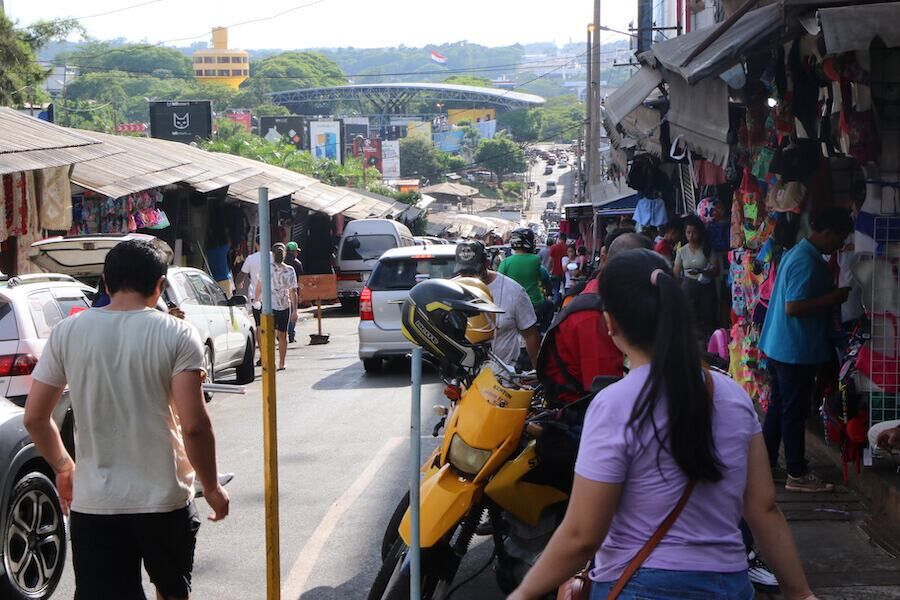
ASUNCIÓN, Paraguay – As of April 2025, the delinquency rate in Paraguay's banking system reached 2.48%, marking a 0.69 percentage point decrease compared to the same month last year. However, this figure represents the highest level in the past seven months, indicating recent pressure on the quality of credit portfolios. According to the latest report from the Central Bank of Paraguay (BCP) and analysis from consulting firm Mentu, this trend simultaneously reflects the overall health of the economy and the vulnerabilities of specific sectors.
Delinquency Rate Trends by Key Sectors
Mentu pointed out that among the sectors with high delinquency rates, the consumption sector was the highest at 4.74%. Despite a 0.94 percentage point decrease from April 2024, it still remains at a high level. Following this, the personal services sector saw a 0.1 percentage point decrease to 4.5%, and wholesale trade dropped by 0.91 percentage points to 3.95% year-on-year. Although these sectors exhibited high delinquency rates, they showed improvement compared to the previous year.
Conversely, the vehicle sales and repair sector recorded the largest decrease in delinquency, falling by 2.4 percentage points to 3.1%. The construction sector also saw a significant reduction, dropping by 1.92 percentage points to 3.67%. These declines suggest that these sectors have either stabilized or improved in credit recovery.
However, despite the overall downward trend, the agribusiness sector was the only one to worsen, with its delinquency rate increasing by 0.9 percentage points to 1.63%. This deterioration could be attributed to specific challenges faced by the agricultural sector, such as climate change, fluctuations in raw material prices, or global supply chain issues. Given Paraguay's high dependence on agriculture, an increase in this sector's delinquency rate could affect financial stability in the long term.
Credit and Deposit Portfolio Growth
Despite the increase in the delinquency rate, the total outstanding loan portfolio of banks and financial institutions grew by 16.52% year-on-year in April 2025. This was driven by a 17.87% growth in local currency loans and a 13.68% growth in foreign currency loans. This indicates that banks are actively expanding their lending activities. While the increase in outstanding loans signifies vitality in the financial system, a simultaneous rise in the delinquency rate could pose potential risks.
Meanwhile, the total private sector deposit balance increased by 10.17% year-on-year. Local currency deposits grew by 10.55% and foreign currency deposits by 9.54%, driving the overall increase in deposits. This suggests stable saving sentiment among economic agents or maintained confidence in the banking system.
Interest Rate Trends
In April 2025, the average active interest rate in local currency for the Paraguayan banking system was 14.37%, an increase of 0.11 percentage points from the previous month and 0.69 percentage points from the previous year. The rise in interest rates was particularly noticeable in the consumer loan and credit card sectors. This could be influenced by the central bank's tight monetary policy or banks' adjustments to risk premiums. High lending rates can increase borrowers' repayment burdens, affecting delinquency rates.
Conversely, interest rates in the commercial, housing, and development loan sectors showed a downward trend. This might be due to efforts to encourage increased loan demand in these sectors or a perception of relatively lower risk.
The average passive interest rate in local currency that banks paid on deposits was 5.15%, a decrease from March but still higher than in April 2024. This indicates banks' efforts to manage funding costs, but also implies relatively lower returns for depositors.
Overall, Paraguay's banking system shows robust growth in its loan and deposit portfolios, but concerns about credit quality are rising as the delinquency rate reached a seven-month high. The high delinquency rates in the consumption and services sectors suggest potential risks in household debt, and the increase in the agribusiness sector's delinquency rate could affect overall economic stability.
The Central Bank of Paraguay and financial authorities should closely monitor these delinquency trends and, if necessary, implement appropriate policy interventions to maintain financial system stability. Furthermore, it appears crucial to explore ways to support borrowers in maintaining their repayment capacity and to strengthen credit risk management for specific vulnerable sectors. Current data indicates that the Paraguayan economy is growing, but it also highlights the need to manage inherent financial risks.
[Copyright (c) Global Economic Times. All Rights Reserved.]






























